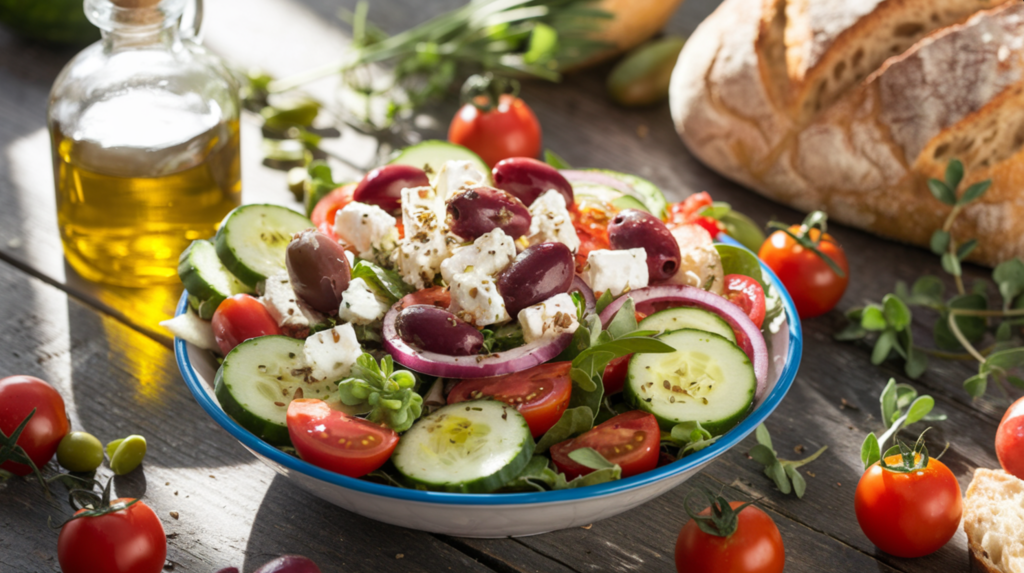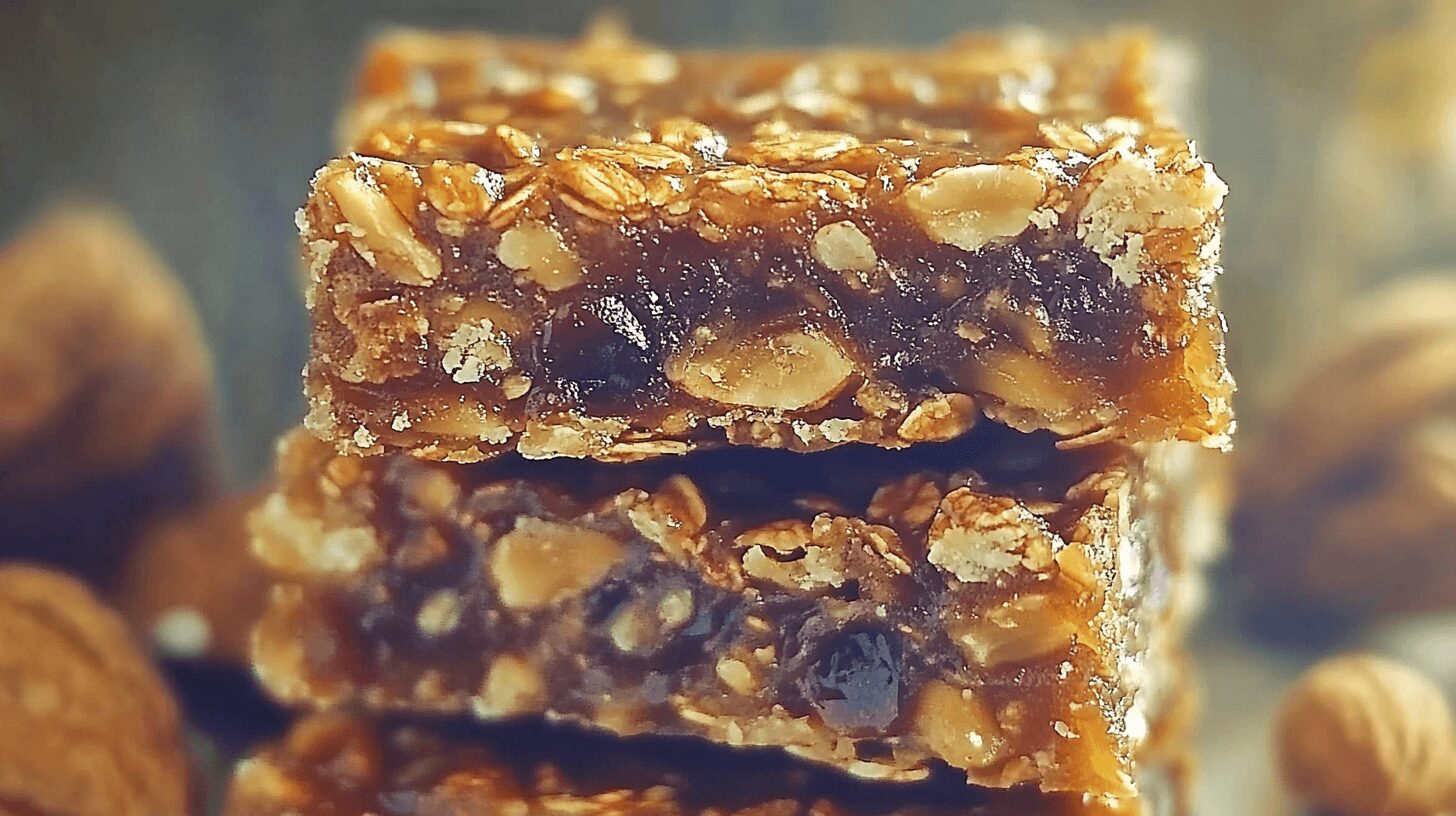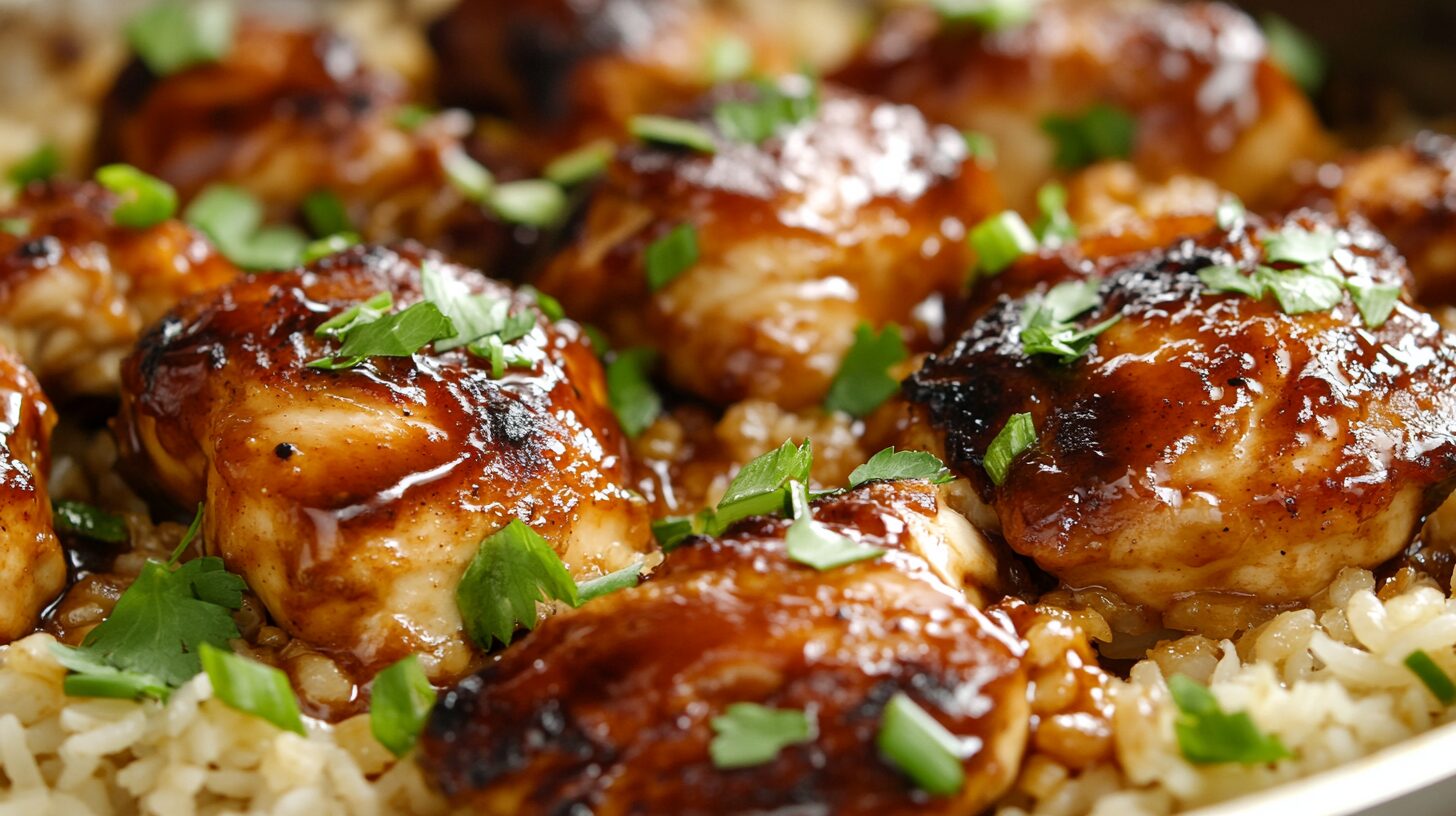What is the Mediterranean Diet? If you’re looking for Easy Mediterranean Diet Recipes, you’re in the right place.
The Mediterranean diet is more than just a meal plan; it’s a way of life celebrated for its incredible health benefits, vibrant flavors, and simplicity. Not only that, but it is also one of the easiest diets to follow, thanks to its reliance on fresh, wholesome ingredients. Above all, these easy Mediterranean diet recipes will guide you step by step toward creating meals that are both delicious and healthy.
What is the Mediterranean Diet?
The Mediterranean diet takes inspiration from the traditional eating habits of countries bordering the Mediterranean Sea, including Greece, Italy, and Spain. In addition, this diet emphasizes whole foods, healthy fats, lean proteins, and plenty of vegetables and fruits. As a result, it has gained recognition for promoting heart health, weight management, and overall well-being. Above all, its adaptability makes it suitable for a variety of dietary preferences and restrictions.
Why Choose Easy Mediterranean Diet Recipes?
There are many reasons to embrace these recipes. First, the health benefits are unmatched. For instance, studies have shown that it can lower the risk of heart disease, diabetes, and inflammation. Additionally, the recipes are simple to prepare, making them accessible even for beginners. On the other hand, the versatility of the diet ensures that it caters to individuals, couples, or families. In short, the Mediterranean diet combines health, flavor, and convenience.
Quick Start Guide to Mediterranean Ingredients
To get started, you’ll need to stock your pantry with some Mediterranean staples. For example, healthy fats like olive oil and avocados are essential. In addition, whole grains such as quinoa, bulgur, and farro provide a hearty base for many meals. Above all, prioritize fresh produce like tomatoes, zucchini, and spinach, which are key to many Mediterranean recipes.
Similarly, lean proteins such as fish, seafood, and legumes form the foundation of the diet. Not only that, but herbs and spices like oregano, basil, and garlic also play a significant role in enhancing the flavors. Finally, don’t forget essentials like feta cheese, olives, and lemon, which are iconic in Mediterranean cuisine.
For example, this shrimp orzo salad offers a great introduction to Mediterranean flavors.
Easy Mediterranean Diet Recipes
| Recipe Name | Ingredients | Instructions |
|---|---|---|
| Classic Greek Salad | Cucumbers, cherry tomatoes, red onion, Kalamata olives, feta cheese, olive oil, red wine vinegar, oregano, salt, and pepper | Combine ingredients in a bowl, drizzle with olive oil and vinegar, sprinkle with oregano, and toss gently. Chill for enhanced flavor. |
| Mediterranean Baked Salmon | Salmon fillets, olive oil, garlic, paprika, parsley, lemon slices, salt, and pepper | Preheat the oven to 375°F (190°C). Rub salmon with olive oil, garlic, and spices. Top with lemon slices and bake for 15-20 minutes. |
| Mediterranean Chickpea Bowl | Chickpeas, quinoa, cherry tomatoes, cucumber, parsley, tahini, lemon juice, garlic, water | Whisk tahini, lemon juice, garlic, and water into a dressing. Assemble quinoa, chickpeas, and vegetables in a bowl. Drizzle with dressing and serve. |
Creative Tips for Mediterranean Recipes
The beauty of these recipes lies in their flexibility. For instance, you can easily swap proteins, such as using tofu instead of chicken or fish. Similarly, you can experiment with grains by replacing quinoa with farro or barley for a different texture.
In addition, meal prepping can save you time during busy weeks. For example, cook grains and proteins in advance so that meal assembly takes just minutes. Above all, don’t be afraid to add flavor boosters like balsamic glaze or za’atar to elevate your dishes.
FAQs About the Mediterranean Diet
What is a Mediterranean diet plan for beginners?
For beginners, the Mediterranean diet focuses on whole, minimally processed foods like vegetables, fruits, nuts, and lean proteins. In addition, starting simple with dishes like Greek salad or roasted fish ensures an easy transition.
What is a typical breakfast on a Mediterranean diet?
A typical breakfast might include a slice of whole-grain bread with avocado, a boiled egg, and fresh fruit. Similarly, Greek yogurt topped with nuts and honey is another popular option.
What is a typical dinner on a Mediterranean diet?
For dinner, grilled fish with a side of roasted vegetables and a quinoa salad works beautifully. In contrast, hearty soups like beef and barley stew provide a warm, comforting meal.
What are the basic foods of the Mediterranean diet?
The diet revolves around olive oil, vegetables, whole grains, seafood, and legumes. Moreover, herbs and spices play an important role in enhancing flavor and aroma.
How to Incorporate Mediterranean Recipes into Your Weekly Routine
Transitioning to a Mediterranean diet doesn’t have to be overwhelming. In fact, with a bit of planning, you can easily incorporate these easy Mediterranean diet recipes into your weekly meal plan. Below are practical tips to make the process seamless.
Start with One Meal a Day
For instance, begin by swapping your regular breakfast with a Mediterranean-inspired option. A simple avocado toast topped with olive oil and a sprinkle of za’atar can be a great start. In addition, pair it with a fresh fruit salad for added nutrients.
Batch Cook Essentials
Batch cooking can save both time and energy. For example, cook a large batch of quinoa or farro at the beginning of the week. As a result, you can use these grains as a base for salads, bowls, or side dishes. Similarly, roasting a variety of vegetables in advance ensures you have a quick and healthy option to pair with your proteins.
Plan Themed Dinners
In contrast to traditional meal planning, organizing themed dinners can make the process more enjoyable. For instance, designate “Greek Night” with dishes like baked salmon and Greek salad. Similarly, plan a “Mediterranean Mezze” night featuring hummus, baba ghanoush, and pita bread.
Keep Snacks Mediterranean
Snacks can be a great opportunity to embrace Mediterranean flavors. Above all, keep options like mixed nuts, olives, and fresh veggies with tzatziki dip on hand. Not only that, but these snacks are both satisfying and nutrient-rich.
Common Challenges and How to Overcome Them
While the Mediterranean diet is straightforward, you might encounter a few challenges, especially in the beginning. However, with the right strategies, these can be managed easily.
Challenge 1: Finding Ingredients
Certain Mediterranean staples, like Kalamata olives or bulgur, may not always be readily available in your local grocery store. In addition, specialty items like za’atar or tahini might require a trip to an international market.
Solution: Look for substitutes. For instance, use regular black olives if Kalamata olives aren’t available. Similarly, peanut butter can be a short-term replacement for tahini in some recipes.
Challenge 2: Adjusting to New Flavors
If you’re not accustomed to Mediterranean spices or ingredients, it may take some time to develop a taste for them. In contrast, rich dishes from other cuisines might feel more familiar at first.
Solution: Introduce new flavors gradually. For example, start by adding a sprinkle of oregano or a drizzle of olive oil to your existing dishes. Over time, your palate will adapt.
Challenge 3: Meal Prep Time
Some Mediterranean recipes involve chopping vegetables or marinating proteins, which might feel time-consuming.
Solution: Plan recipes that require minimal prep. For instance, dishes like the Mediterranean chickpea bowl can be prepared in less than 15 minutes. Moreover, using pre-chopped vegetables or canned legumes can save time without compromising flavor.
Popular Variations for Mediterranean Recipes
One of the best aspects of Mediterranean cooking is its versatility. You can tailor recipes to suit your dietary preferences, time constraints, or ingredient availability. Below are some creative variations:
- Vegetarian Options: Replace meat with plant-based proteins like lentils or chickpeas. For example, a vegetarian stuffed bell pepper filled with quinoa, spinach, and feta is a delightful alternative.
- Low-Carb Versions: Substitute grains with cauliflower rice or zucchini noodles. In addition, focus on high-protein ingredients like eggs, salmon, and Greek yogurt.
- Quick & Easy Meals: For busy days, prepare a one-pan meal like roasted vegetables and chicken drizzled with olive oil and lemon juice.
- Mediterranean Desserts: Don’t forget dessert! Try a simple yogurt parfait layered with honey, nuts, and fresh berries.
The Mediterranean Diet for Weight Loss
Many people turn to the Mediterranean diet for its weight-loss benefits. Above all, the diet focuses on nutrient-dense, low-calorie foods that promote satiety. As a result, it naturally supports a calorie deficit without feeling restrictive.
Key Tips for Weight Loss on the Mediterranean Diet
- Control Portion Sizes: Even with healthy foods, portion control is essential. For instance, measure your servings of olive oil and nuts to avoid excess calories.
- Focus on Vegetables: Fill at least half your plate with vegetables. Not only that, but they’re also packed with fiber, which keeps you full longer.
- Limit Processed Foods: Stick to whole foods whenever possible. In contrast, processed items often contain hidden sugars or unhealthy fats.
- Stay Active: The Mediterranean lifestyle isn’t just about food. In addition, staying physically active is a core component.
The Mediterranean Lifestyle: More Than Just Food
The Mediterranean diet is about more than just recipes. Above all, it promotes a holistic approach to well-being. For instance, enjoying meals with family and friends is a key cultural component of the Mediterranean lifestyle. Similarly, walking and outdoor activities play an essential role in maintaining overall health.
Key Benefits of the Mediterranean Diet
Adopting the Mediterranean diet offers a variety of health and lifestyle benefits. In addition, it aligns with many scientific studies that highlight its positive impact on physical and mental health. Below are some of the key benefits:
1. Heart Health
Above all, the Mediterranean diet is renowned for its ability to improve heart health. For example, olive oil, a staple of the diet, is rich in monounsaturated fats that can help lower bad cholesterol levels. Similarly, the diet’s focus on fish, which contains omega-3 fatty acids, further supports cardiovascular health.
2. Weight Management
As a result of its nutrient-dense and filling foods, the Mediterranean diet can help with weight management. Not only that, but the emphasis on whole grains, lean proteins, and vegetables naturally reduces calorie intake while keeping you satisfied.
3. Reduced Risk of Chronic Diseases
Research shows that the Mediterranean diet lowers the risk of chronic diseases, including type 2 diabetes and certain types of cancer. In contrast to diets high in processed foods, its focus on antioxidants and anti-inflammatory ingredients makes it particularly effective.
4. Improved Mental Health
In addition to physical benefits, the Mediterranean diet has been linked to better mental health. For instance, the inclusion of omega-3s and B vitamins from fish and whole grains supports brain function and reduces the risk of depression.
5. Longevity
Finally, people who follow a Mediterranean diet tend to live longer, healthier lives. This is due to its comprehensive approach to nutrition, activity, and community-based meals.
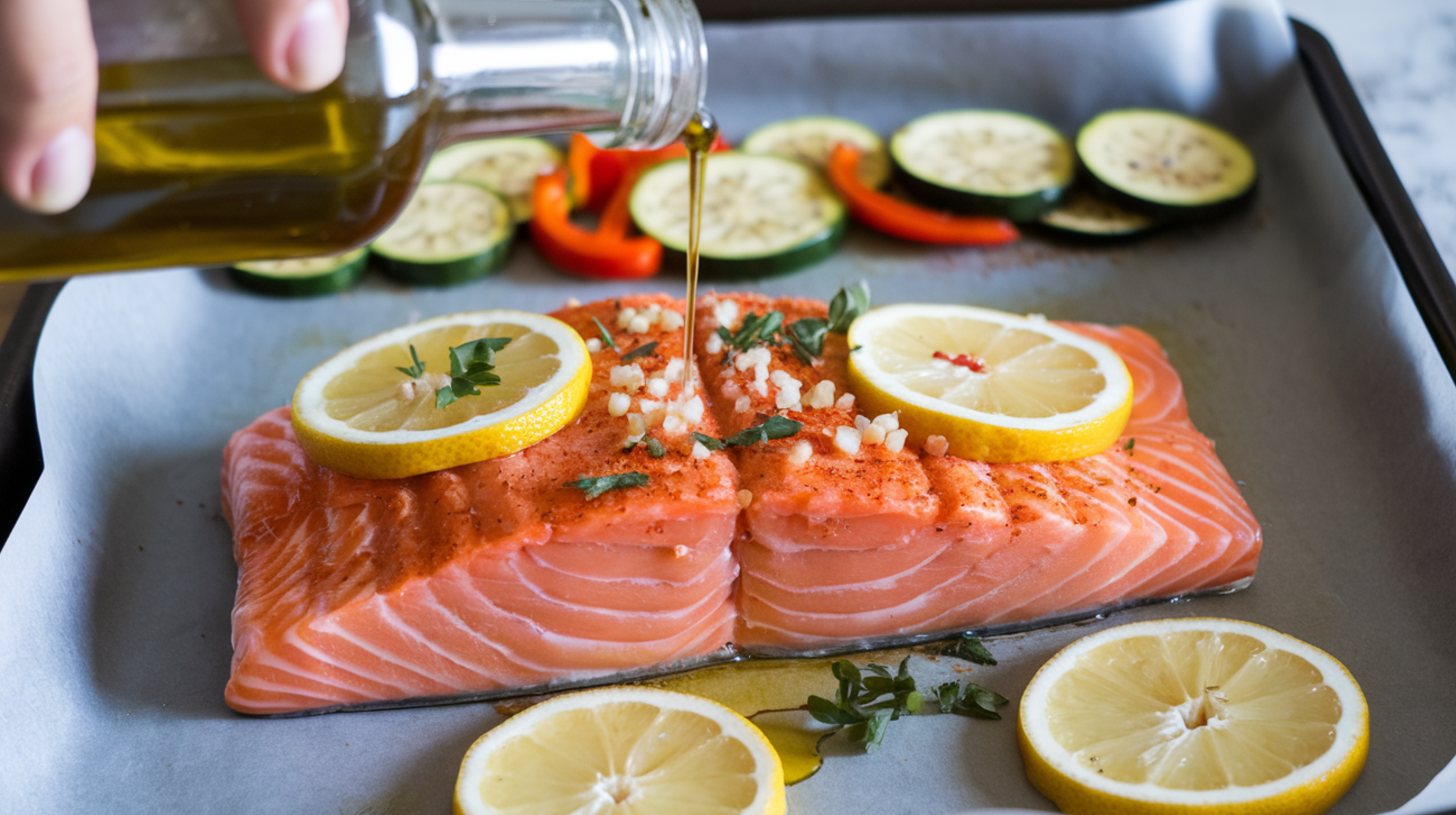
How to Build a Balanced Mediterranean Meal
Building a Mediterranean meal is simple and fun. To illustrate, here’s a quick guide to structuring a perfectly balanced dish:
Step 1: Start with Vegetables
Make vegetables the star of your meal. For instance, roasted zucchini, bell peppers, or spinach sautéed in olive oil are great options.
Step 2: Add a Protein
Choose lean proteins like grilled fish, chicken, or plant-based options like chickpeas. In addition, seafood like salmon or shrimp adds omega-3s and flavor.
Step 3: Incorporate Whole Grains
Opt for nutrient-rich grains like quinoa, farro, or bulgur. These provide energy and fiber. For example, pair a Greek salad with a side of tabbouleh for a complete meal.
Step 4: Top with Healthy Fats
Drizzle extra virgin olive oil or sprinkle chopped nuts for added richness. Similarly, a few slices of avocado or a handful of olives can enhance your dish.
Step 5: Add Herbs and Spices
Season generously with Mediterranean herbs like oregano, basil, and parsley. As a result, your dishes will have depth and aroma without needing excess salt.
Mediterranean Diet Meal Plan Example
To help you get started, here’s a sample day on the Mediterranean diet:
Breakfast
- Avocado toast with whole-grain bread
- Greek yogurt with a drizzle of honey and a handful of walnuts
- Fresh fruit such as figs or berries
Lunch
- Mediterranean chickpea bowl with quinoa and tahini dressing
- Side of cucumber and tomato salad with feta cheese
Snack
- Mixed nuts (almonds, pistachios, or hazelnuts)
- A handful of Kalamata olives
Dinner
- Baked salmon with roasted vegetables
- Farro salad with parsley, lemon juice, and olive oil
Dessert
- Yogurt parfait with honey, fresh berries, and a sprinkle of granola
This plan demonstrates how easy and enjoyable Mediterranean meals can be. Additionally, it showcases the balance of nutrients and flavors characteristic of the diet.
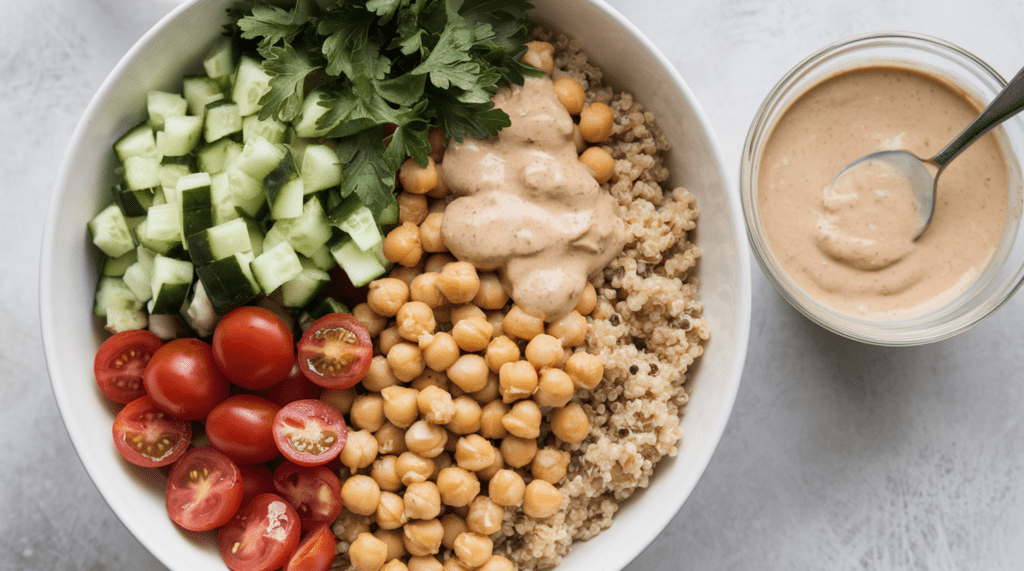
Practical Tips for Sticking to the Mediterranean Diet
While the Mediterranean diet is straightforward, sticking to it consistently can be challenging, especially if you’re transitioning from a different dietary approach. However, these practical tips can help you stay on track:
1. Keep Your Pantry Stocked
Having essential ingredients on hand ensures you’re always prepared. For instance, keep olive oil, canned chickpeas, whole grains, and fresh vegetables readily available.
2. Plan Ahead
Meal planning is key. For example, spend time each week creating a menu and prepping ingredients. As a result, you’ll save time and reduce stress during busy days.
3. Dine with Friends and Family
In addition to the health benefits, the Mediterranean diet recipes lifestyle emphasizes the joy of sharing meals with loved ones. This creates a positive association with your dietary changes.
4. Explore New Recipes
To prevent boredom, try a variety of recipes. For instance, experiment with regional Mediterranean dishes like shakshuka, ratatouille, or spanakopita.
5. Practice Moderation
While the diet includes healthy fats and grains, portion control is important. Above all, balance is the key to long-term success.
Conclusion
In conclusion, the Mediterranean diet recipes is not only a path to better health but also an opportunity to enjoy flavorful and satisfying meals. Its emphasis on fresh ingredients, vibrant spices, and communal eating makes it more than just a diet—it’s a way of life.
Finally, if you’re looking for more inspiration, explore shrimp rice recipes or trusted sources like Eating Well’s Mediterranean Recipes. Similarly, A Couple Cooks and the Reddit Mediterranean Diet community offer excellent resources for meal planning and ideas.
Above all, embrace this diet for its simplicity, health benefits, and rich flavors. Let these easy Mediterranean diet recipes inspire you to start your journey toward a healthier lifestyle today!

Chocolate Guinness Cake with Baileys Buttercream

Ultimate Dolly Parton Butterscotch Pie: 5 Sweet Reasons to Try This Classic Dessert

5-Minute Sausage Egg and Cheese Breakfast Roll-Ups: The Perfect Morning Delight
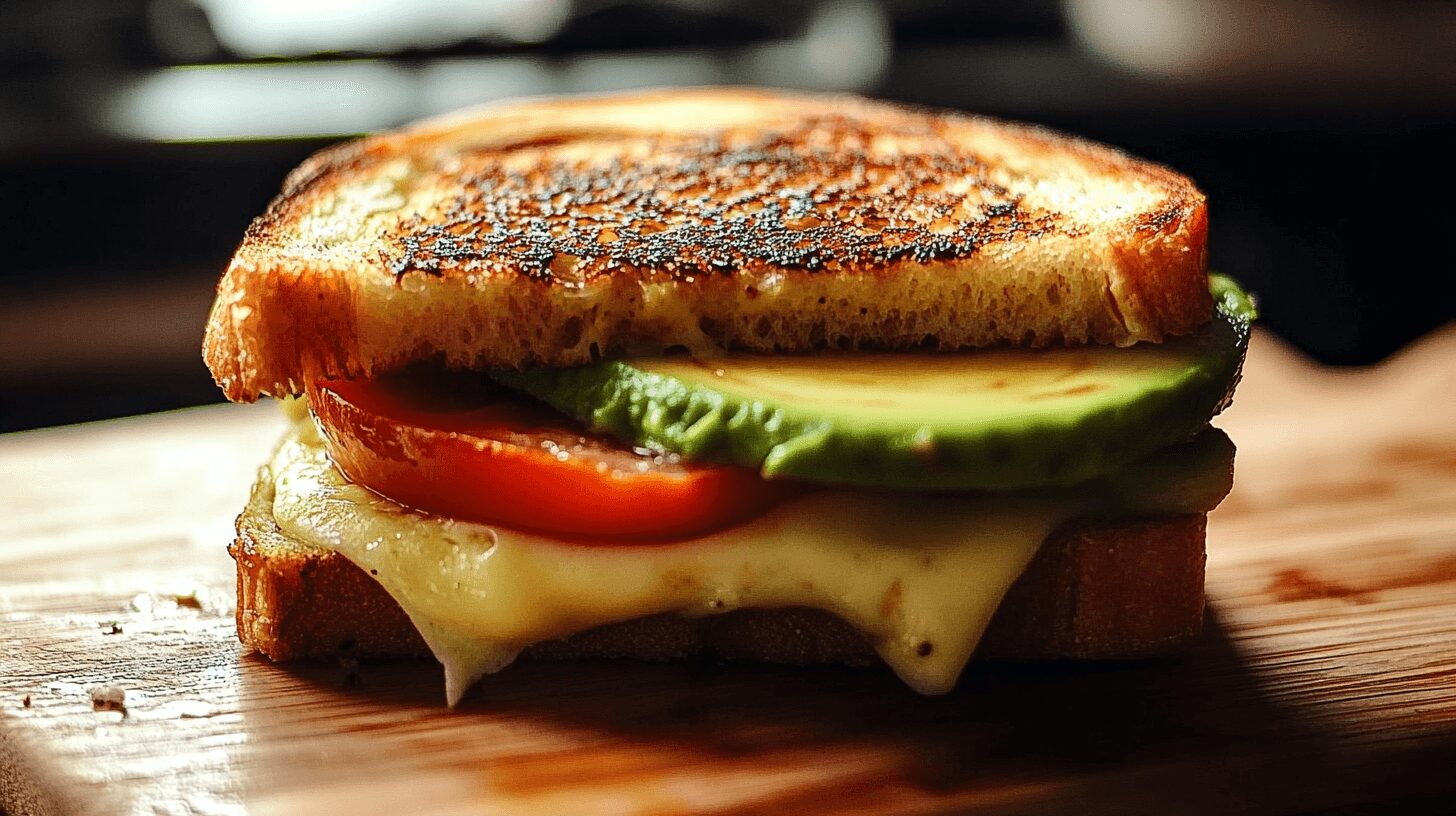
Healthy Avocado Grilled Cheese: 5 Reasons to Try This Nutritious Twist on a Classic
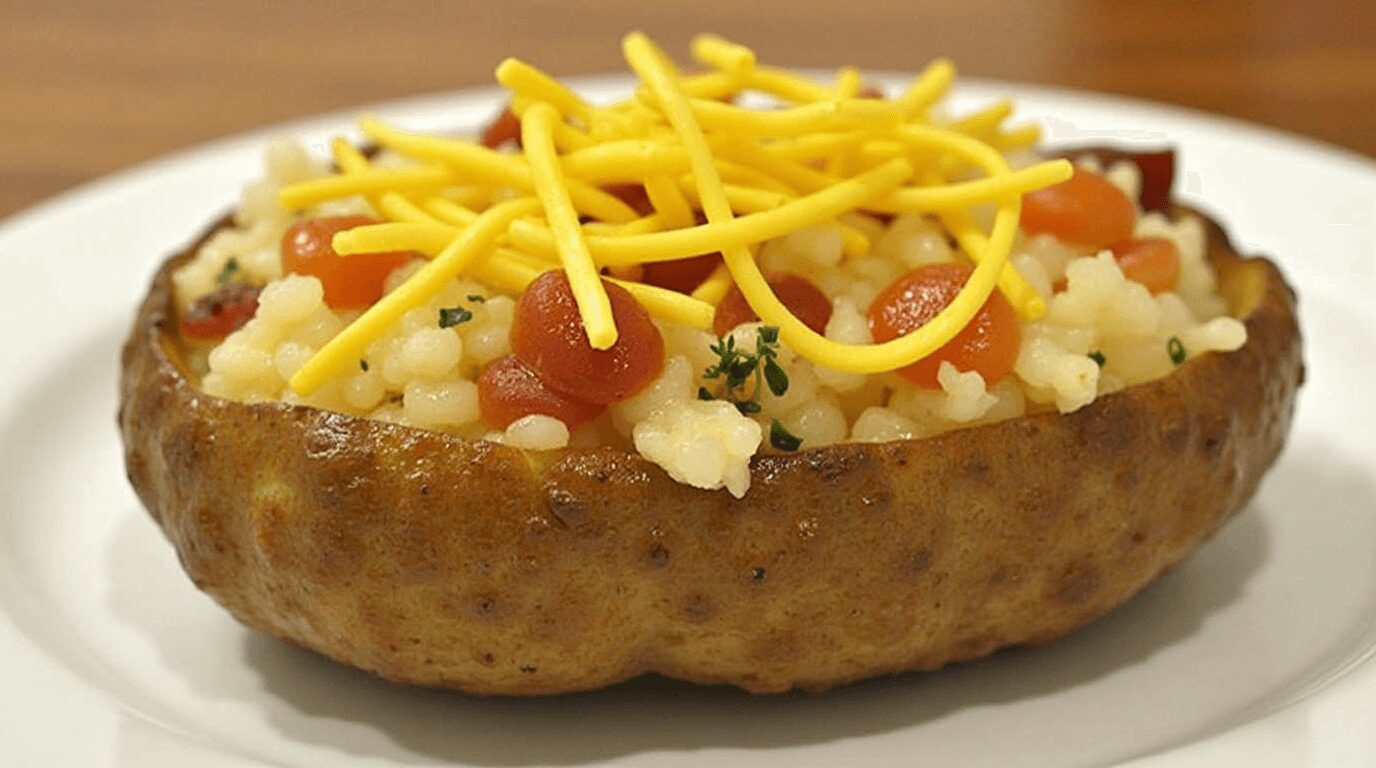
7 Reasons to Love Smothered Potatoes: A Delicious and Nutritious Comfort Food
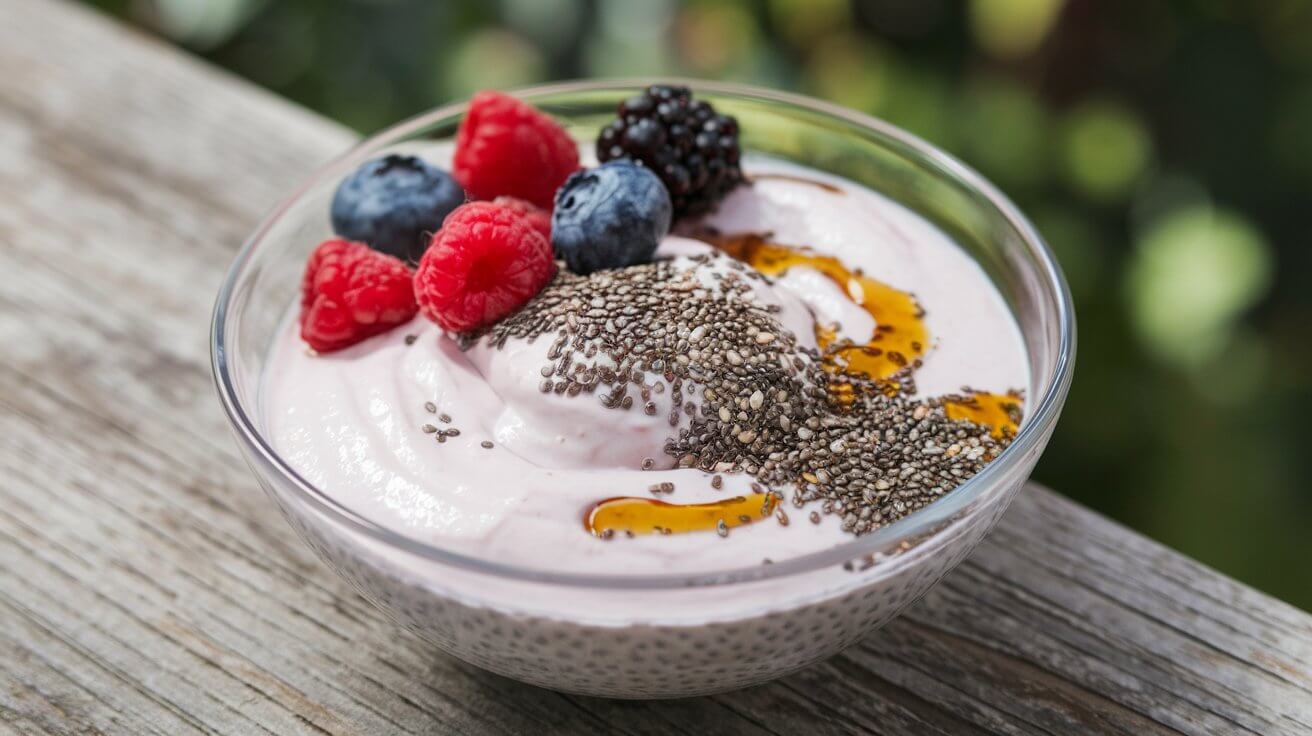
Greek Yogurt Chia Pudding: 5 Reasons This Simple, Healthy Treat is a Game-Changer


